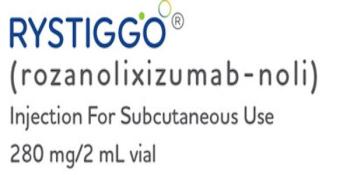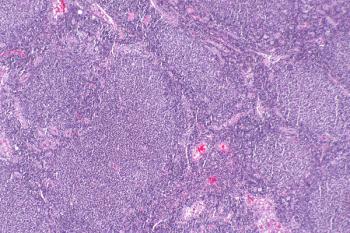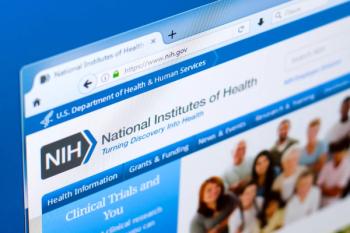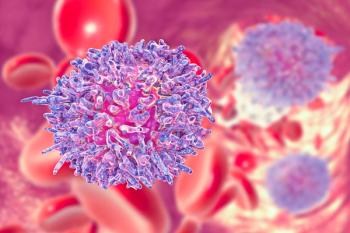
Patients hospitalized for bronchiectasis exacerbations face higher mortality, longer stays, and greater costs than those with COPD or asthma.

Patients hospitalized for bronchiectasis exacerbations face higher mortality, longer stays, and greater costs than those with COPD or asthma.

An improvement in ophthalmological knowledge was seen compared with older large language models and ophthalmology trainees.

Rozanolixizumab shows promise in treating triple-seronegative myasthenia gravis, offering hope for patients with limited treatment options.

Long-term nitrogen dioxide exposure raises ovarian cancer risk, underscoring the need for stricter air quality measures.

Rachel A. Prusynski, DPT, PhD, discusses her study on how payment models affect home health care delivery and patient outcomes.

Semaglutide and tirzepatide led to the most weight loss across 22 trials, while liraglutide remains a cost-effective alternative as its patent expires.

Men who have sex with men (MSM) expressed interest in both monthly oral pills and injections every 6 months to prevent HIV.

Plozasiran gains FDA approval as the first treatment for familial chylomicronemia syndrome based on phase 3 PALISADE data.

The FDA approved epcoritamab with rituximab and lenalidomide for relapsed follicular lymphoma, offering a promising fixed-duration treatment option for patients after their first relapse.

Women under 50 who consume high levels of ultraprocessed foods have a higher risk of developing early-onset conventional colorectal adenomas.

Lower-income countries rarely gain timely access to FDA-approved drugs tested in their populations, highlighting major global and ethical disparities.

Targeted financing, clinician recruitment, and telehealth expansion are needed to improve rural primary care.

Guselkumab significantly inhibited structural joint damage and improved symptoms in active PsA through 48 weeks.

Infectious disease was hit hardest by funding cuts to NIH grant for clinical trials that did not align with the Trump administration's priorities.

Cuts to Medicaid could spell trouble for pediatric health, as millions of children rely on Medicaid to cover their hospital expenses.

Research challenges age cut-offs in AML treatment, advocating for flexible, individualized approaches based on continuous age assessment.

Patients 65 years and older had improved overall and cancer-specific survival after undergoing chemoradiotherapy for stage 2 NSCLC.

Topline results find that single-tablet regimen of bictegravir/lenacapavir had noninferior efficacy when patients switched from multitablet regimens in HIV.

A novel RTEL1 nonsense mutation was identified in a woman with multigenerational familial pulmonary fibrosis (PF), expanding the genetic spectrum of telomere-related lung disease and underscoring the importance of genetic testing in suspected inherited interstitial lung disease (ILD).

A wide range of non-invasive tests reliably reflected semaglutide-related improvements in metabolic dysfunction-associated steatohepatitis (MASH) and fibrosis.

Routine flow cytometry can reliably track chimeric antigen receptor (CAR) T-cell expansion and persistence in aggressive large B-cell lymphoma (LBCL).

Immunoglobulin heavy chain variable is an important prognostic biomarker in chronic lymphocytic leukemia, but the authors of a new review say its role has yet to be fully understood.

The causes of financial hardship among people with rheumatoid arthritis are not necessarily based on the cost of disease-modifying therapies, according to new research.

A national survey analysis suggests a link between higher Food Inflammation Index scores and metabolic liver disease.

CAR T-cell therapy achieves meaningful responses and survival gains in this aggressive CLL complication.

Diet and metabolic health may have causal effects on MS development, suggesting that a healthy weight, controlling glucose levels, and reducing red meat intake may delay or prevent onset.

Updated guidelines set lower systolic blood pressure goals, expanded risk-based treatment, and call for stronger implementation to close care gaps.

AI and digital tools are reshaping breast cancer care—from screening and trials to remote monitoring and lifestyle support.

Papillary muscle scarring has a substantial association with both cardiovascular mortality and arrhythmia.

Early measles vaccination among Texas infants surged in early 2025, likely helping reduce their risk amid the nation's largest outbreak since 2000.

259 Prospect Plains Rd, Bldg H
Cranbury, NJ 08512
© 2025 MJH Life Sciences®
All rights reserved.
